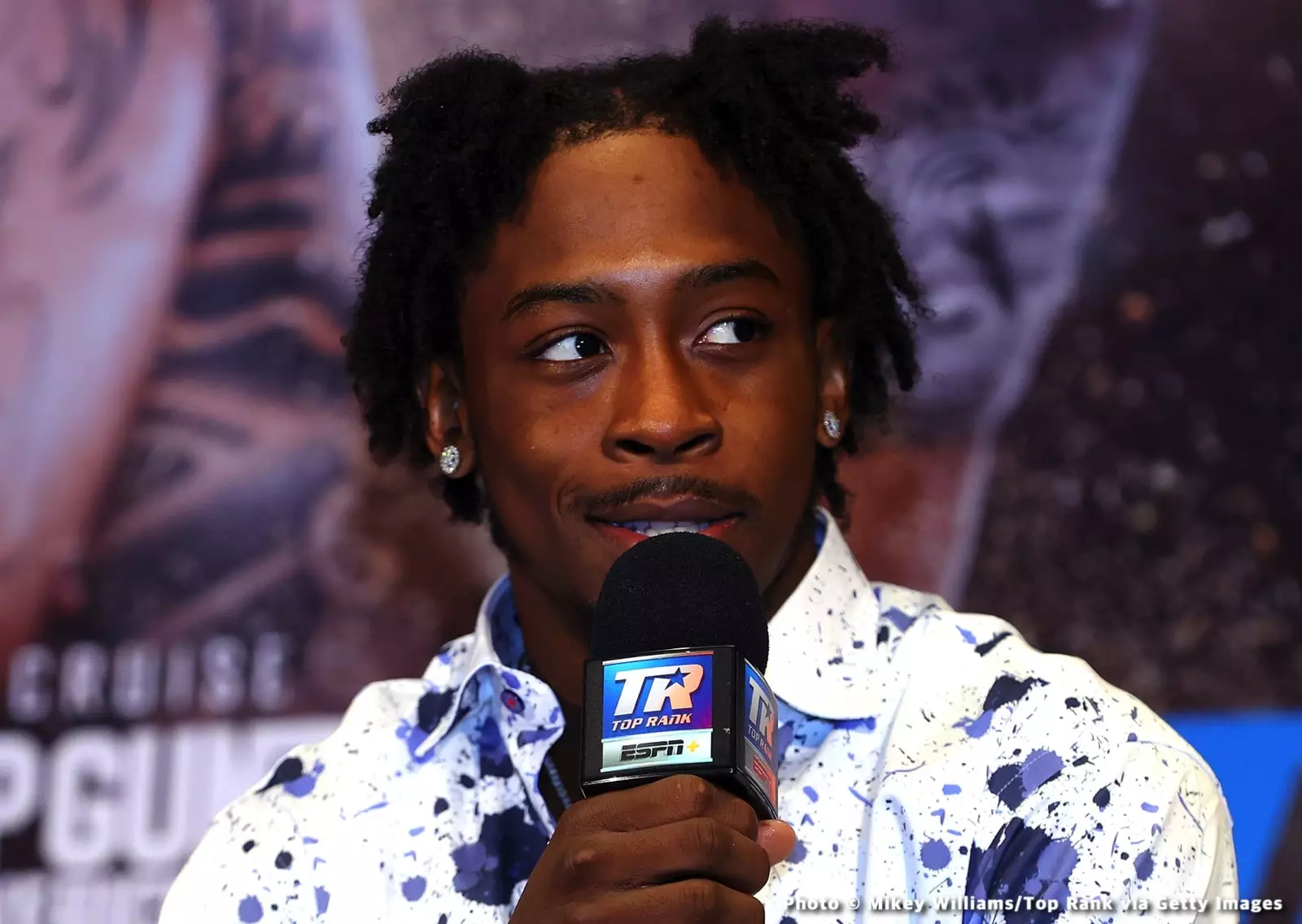In the aftermath of Devin Haney’s controversial loss to Ryan Garcia, Keyshawn Davis has openly criticized Haney for his reaction, particularly regarding the legal actions he initiated. Haney has recently filed a lawsuit against Garcia, stemming from allegations that Garcia tested positive for a trace amount of the banned substance Ostarine before their fight held on April 20th, in Brooklyn. Davis, a rising star in boxing, believes this move underscores Haney’s inability to handle defeat gracefully. He has publicly labeled Haney as “soft,” asserting that his resorting to legal measures reflects a deeper issue: a lack of maturity in accepting loss.
Talent Versus Circumstance
Davis argues that Haney’s loss should not be attributed to Garcia’s alleged use of performance-enhancing drugs, but rather to the simple fact that Garcia outperformed him in the ring. According to Davis, Haney has not been tested by formidable opponents before and was ill-prepared for the reality of facing someone of Garcia’s caliber. This sentiment resonates with boxing fans who feel Haney has benefitted from privilege throughout his career, referring to him as a “daddy’s boy” who has been handed opportunities without having to fight for them in the same way that many other boxers do. The underlying message from Davis is that true champions know how to embrace both victory and defeat, a lesson Haney seems to be struggling with.
Haney’s decision to sue has not only been met with criticism from fighters like Davis but has also stoked backlash from the boxing community at large. Fans have largely rallied behind Garcia, perceiving Haney’s actions as desperate and uncharacteristic of a true sportsman. The prevailing opinion seems to be that instead of seeking a rematch to redeem himself in the eyes of fans and critics alike, Haney opted for a route that might tarnish his legacy further. The narrative that is emerging is one of lost respect as supporters grow weary of Haney’s seemingly self-serving motives. Davis’ comments shed light on this shift: “Instead of enhancing your career, you’ve shot yourself in the foot.”
Davis emphasizes that every athlete experiences losses and that how they respond speaks volumes about their character. He believes that by choosing to sue instead of seeking a rematch or engaging in a constructive dialogue, Haney is displaying a lack of resilience. The young boxer’s remarks imply a broader message to his peers: success should be defined not only by the number of wins or belt titles but also by how one can stand back up after being knocked down, both physically and metaphorically. In this era of modern boxing, where mental fortitude is as crucial as skill, Davis hopes for a shift back to a more traditional ethos of sportsmanship, urging his contemporaries to confront defeat with integrity and strength.
As the boxing landscape evolves, it’s imperative for its champions to reflect on what it truly means to be a winner. Haney’s situation serves as a cautionary tale about resilience, humility, and the respect owed to both opponents and the sport itself.

